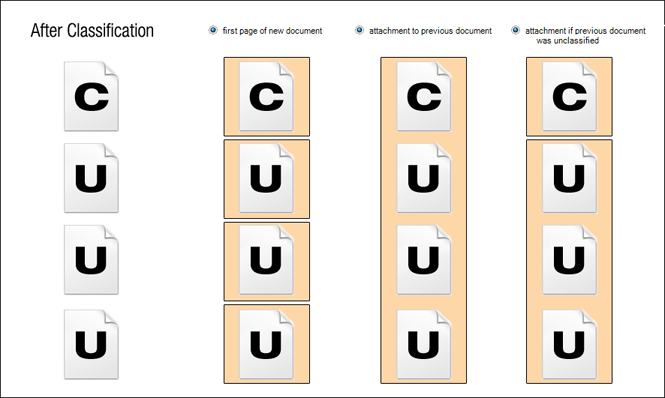How to handle unclassified pages with Standard Document Separation
When configuring Standard Document Separation, select one of the following values to choose how to handle unclassified pages:
-
First page of a new document
-
Attachment to previous document
-
Attachment if previous document is unclassified
For example, you have a 4-page document After classification, the first page is confidently classified while the other 3 pages are unclassified. Depending on your selection, one of the following scenarios can occur.
-
The 3 unclassified pages are the first page of a new document
-
The 3 unclassified pages are attachments to the previous document
-
The 3 unclassified pages are attachments to the previous document if the previous document is unclassified.
